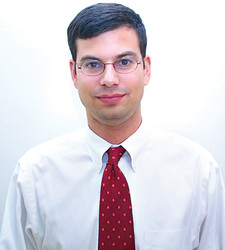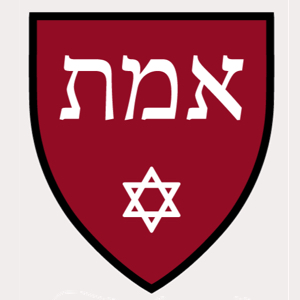by Ira Stoll
The assignment or invitation here was “Explaining All the Things.”
Upon reflection that might be a little ambitious even for me.
When people ask me how Harvard is doing I usually say two steps forward, one step back.
Sometimes it feels like the accurate answer is one step forward, two steps back. It can feel like Harvard is no better than it was in the immediate aftermath of October 7, 2023, when the Harvard Jewish Alumni Alliance was founded.
The most recent, and stunning, empirical evidence for the grim view comes from a “Pulse” survey conducted by Harvard itself and released this week. It asked respondents to agree or disagree with the statement, “I feel comfortable expressing my opinions to others at Harvard.” Forty-seven and a half percent of Jewish-only students answered “yes,” to that question, compared to 68 percent of students overall, a vast gap. Another question was “I feel like I can be my authentic self at Harvard.” About 57 percent of Jewish-only students agreed with that statement, again much lower than the 73 percent overall rate. Another question was, “At Harvard, I have formed satisfying personal relationships with people who have different viewpoints than me.” Fifty-five percent of Jewish-only students agreed with that statement, again significantly lower than the 65.6 percent overall agreement rate. In other words, Harvard’s own survey reports Jewish students as being unable to participate fully in the Harvard educational experience. That is a scandal. The Harvard leadership can reiterate endlessly how opposed it is to antisemitism, but the facts on the ground are what they are.
The grim view is visible, too, in images from the campus and around it. On Monday I attended a court appearance in the case of Elom Tettey-Tamaklo and Ibrahim Bharmal, two Harvard graduate students charged with assault and battery on a Jewish Harvard Business School student, and wrote about it for my TheEditors.com newsletter, which you should all become free or paid subscribers to, preferably paid. The Jewish Harvard Business School student noted in his victim impact statement that his assailants “have failed to show an ounce of remorse.” That description applies, alas, to a lot of people at Harvard higher up than Tettey-Tamaklo and Bharmal. It helps to explain the Harvard students muttering on their way out of the hearing about having to sit next to “Zionists” in the packed courtroom, and why Tettey-Tamaklo and Bharmal were strutting around the courthouse with the demeanor of Civil Rights heroes rather than accused criminals.
The Wall Street Journal headline over Ruth Wisse’s article, “Harvard Is an Islamist Outpost,” is designed to get readers to click, and you could maybe quibble whether the dominant faction is purely Islamism or secular-Marxist Palestinian nationalism of the Popular Front for the Liberation of Palestine (as elsewhere, they cooperate when convenient), but the present tense, “is,” is appropriate.
And yet there are some signs of progress. Too slow, and in apparent response to government and donor pressure, but, yet, progress. Look at the “objectives and requests” of the Harvard Jewish Alumni Alliance—adopt the International Holocaust Remembrance Alliance (IHRA) working definition of antisemitism, including all of its examples; more university-wide uniformity in discipline; institutional neutrality; review and revise Diversity, Equity, Inclusion and Belonging—and Harvard has made at least symbolic efforts in those directions, over the loud objections of the anti-Israel and status-quo factions. Harvard has also made some adjustments to some problematic programs including its Center for Middle East Studies, the Divinity School Religion and Public Life program, and a Harvard partnership with Birzeit University.
The federal government’s freeze on some Harvard funding has raised concerns that the agenda of improving Harvard by combating discrimination and restoring a flourishing Jewish community will be caught up, like nearly everything else these days, in bitter political partisanship. To people who are worried that Jews at Harvard will be blamed for Trump’s funding freeze, I’ve been replying that the situation for Jews at Harvard wasn’t particularly great during the Biden administration. Jew-hate has a way of thriving at Harvard regardless of the presidential administration. The president of the U.S. when Harvard President Lowell proposed a quota limiting Jewish admissions was Warren Gamaliel Harding. The president when Harvard professor Stephen Walt put out his notorious working paper on the Israel Lobby and U.S. Foreign Policy was George W. Bush. I worry less about Trump—America has robust institutions—and less about the Jews—we have nuclear weapons and God is with us—and more about Harvard. Unless it ups its game rapidly, it is in danger of being outhustled and outperformed by other, competing institutions that are less complacent, less arrogant, more responsive, less remorseless, and are doing better jobs of attracting and welcoming Jewish talent and excellence.

About Ira Stoll
Stoll is author of JFK, Conservative (Houghton Mifflin Harcourt, 2013) and Samuel Adams: A Life (Free Press, 2008). He was vice president and managing editor of the New York Sun, which he helped to found, from its debut in 2002 until its cessation of print publication in 2008. Before that he was a consultant to the editorial page of the Wall Street Journal, North American editor of the Jerusalem Post, editor of Smartertimes.com, Washington correspondent and then managing editor of the Forward, and a reporter for the Los Angeles Times. From 2019 to 2023 he was managing editor of Education Next. He is a graduate of Harvard, where he was president of the Harvard Crimson. He lives in Boston.

